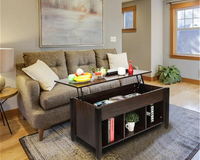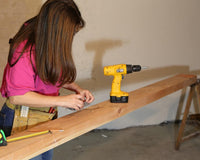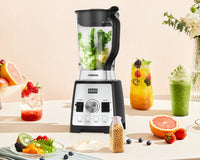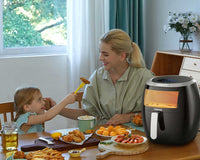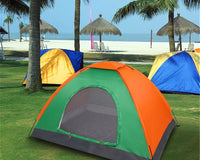The change of seasons brings a slew of allergies with it. While you can't do much about outdoor allergens, you can do a lot to keep indoor allergies at bay. Many individuals are unaware that their houses are hotspots for indoor air pollution, which can aggravate asthma and allergies. It is recommended to make your house allergy-proof to ensure that it is safe from harmful bacteria and allergies rather than becoming a breeding ground. This will protect you and your family from allergies.

Should I Buy an Air Purifier?
Purchasing an air purifier may be a good option for you if you suffer from allergies, are sensitive to air pollutants, or live in a space that doesn’t allow for fresh air to be brought inside all the time.
Air purifiers help to remove many pathogens from the air. The goal is to clean the air so that if you have allergies, asthma, or other conditions, you can breathe easier in the room where the purifier is operating.

How Does an Air Purifier Work?
An air purifier works by pulling in air and passing it through different filters to catch particulates. The unit will push the clean air back out into the room, allowing it to circulate.
The best air purifiers all feature HEPA filtrations which can capture particles like dust, pollen, and some mold spores down to 0.3 microns. Depending on the air purifier you choose, there are different types of technology used to clean the air. Some use a UV light while others use activated carbon filters that help eliminate odors. Filters can be washable, which can save money, while other filters are disposable and need to be replaced every three, six, or 12 months.

How Much Does an Air Purifier Cost?
The air purifiers range from $120 to $650. All the air purifiers use a HEPA filter but vary in size, features, and cost, so the one that’s best for you will depend on what you are looking for and your budget. Some come with washable filters, which saves money on the filter life, while others use multiple filters like an activated carbon filter and nylon pre-filters.

Types of Air Purifiers
The different types of air purifiers use different technology to clean the air.
HEPA: HEPA stands for High Efficiency Particulate Air filter. A HEPA filter is a multi-layered filter that captures particles down to 0.3 microns in size. The filter is pleated and held together with a metal frame.
Activated Carbon Technology: Air purifiers that use activated carbon technology in their filters have special properties that remove volatile organic compounds (VOCs), odors, and gas pollutants. Carbon filters trap the molecules on charcoal.
UV Technology: Air purifiers that use UV light use short-wave ultraviolet light (UV-C light) to deactivate pathogens like mold, bacteria, and viruses.
Negative Ion: Also known as an ionizer air purifier, these types of air purifiers use a high voltage electrical charge to attract particles to each other and clean the air. Depending on the air purifier, some use a fan, while others don’t and the charged particles end up on the floor or curtains.
Ozone: Ozone can be harmful and according to the EPA, ozone being sold as an air purifier isn’t truthful. Small doses of ozone that are inhaled can cause chest pains, coughing, shortness of breath, and throat irritation.


